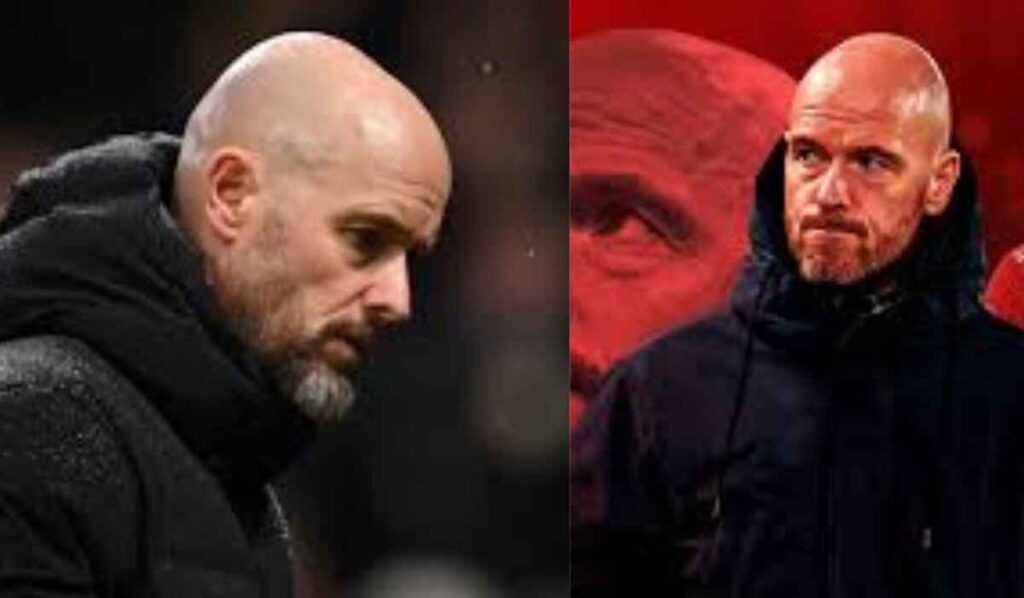Manchester United, one of the most storied football clubs in the world, is currently grappling with a significant issue that threatens their ambitions: the consistent waste of goal-scoring opportunities. Manchester United Must Stop Wasting So Many Opportunities—Ten Hag’s. Under the leadership of Erik ten Hag, the Red Devils have shown flashes of brilliance, but their inability to convert chances into goals has been a persistent problem. As the pressure mounts, it is crucial for Ten Hag and his team to address this issue if they are to compete at the highest level.
A Legacy of Missed Chances
Manchester United‘s struggle with finishing has not only been a recent development. Over the past few seasons, there has been a noticeable pattern of the team squandering crucial chances in key moments. While they have been able to create opportunities through dominant possession and clever movement, the final product has often been lacking. This issue was present before Ten Hag’s arrival and has unfortunately continued under his tenure.
The team’s lack of clinical finishing has cost them dearly in various competitions, leading to dropped points in the league and early exits in cup competitions. Despite the tactical evolution under Ten Hag, the problem remains a thorn in the side of Manchester United’s ambitions.
Ten Hag’s Tactical Approach
Erik ten Hag is known for his possession-based football and high pressing, which are designed to keep the opposition on the back foot and create numerous goal-scoring opportunities. His philosophy emphasizes quick transitions, intelligent movement, and a relentless attacking mindset. However, the effectiveness of this approach is severely hampered when the team fails to convert their chances.
In matches where United has dominated possession and created opportunities, the lack of a killer instinct in front of goal has been glaring. The team often looks fluid and dynamic until it reaches the final third, where decision-making and composure seem to falter. This issue is not merely about individual mistakes; it reflects a broader problem within the squad’s attacking dynamics.
Key Players and Their Roles
Manchester United’s attacking lineup boasts significant talent, with players like Marcus Rashford, Bruno Fernandes, and Antony expected to deliver the goods in front of goal. However, these players have struggled with consistency. Rashford, who has the pace and technical ability to break down defenses, often falters at the final hurdle. His tendency to rush shots or take one touch too many has been a recurring issue.
Bruno Fernandes, the creative heartbeat of the team, sometimes finds himself in positions where he tries to do too much, leading to missed opportunities. Antony, still adapting to the Premier League, has shown potential but needs time to develop the clinical edge required at this level.
New additions like Rasmus Højlund were brought in to bolster the attack, but placing the entire burden of goal-scoring on a single player is unrealistic. The solution lies in a collective effort where every attacking player is capable of stepping up when needed.
The Mental Aspect of Finishing
The repeated failure to convert chances can have a significant psychological impact on the team. As missed opportunities pile up, the pressure to score increases, leading to heightened anxiety and rushed decisions in front of goal. This mental block can be debilitating for a team that aspires to win titles.
Erik ten Hag must focus on building the team’s mental resilience. Confidence in front of goal is crucial, and players need to develop the composure to finish chances under pressure. The ability to remain calm and composed, even in high-stakes situations, is what separates great goal-scorers from the rest.
Steps to Improve Finishing
To address this issue, Ten Hag needs to implement a comprehensive strategy that focuses on improving the team’s finishing ability. This includes:
Intensive Finishing Drills
Training sessions should prioritize match-like scenarios where players are required to make quick decisions under pressure. By replicating the conditions of a real game, players can develop the muscle memory and composure needed to finish chances consistently.
Squad Rotation
Ensuring that key attacking players are well-rested is crucial for maintaining sharpness in front of goal. Fatigue can lead to lapses in concentration, which are often the difference between scoring and missing.

Psychological Training
Incorporating psychological training into the team’s routine can help players manage the mental pressure of goal-scoring. Techniques such as visualization and mindfulness can improve focus and reduce anxiety during critical moments.
Analyzing Opponents
Understanding the defensive tendencies of opponents can help players make better decisions in the final third. By studying how different teams defend, United’s attackers can anticipate how to exploit gaps and finish more effectively.
Long-Term Outlook
Manchester United’s inability to convert chances is a significant obstacle in their quest for success under Erik ten Hag. However, with the right adjustments, there is hope that this issue can be resolved. The team has the talent, and under Ten Hag’s guidance, they have the potential to become a dominant force once again. The road ahead is challenging, and the margins for error are slim. But if United can overcome their wastefulness in front of goal, there is no limit to what they can achieve. The key is for the entire squad to take responsibility for finishing and to work together to improve this critical aspect of their game.
What is the main issue with Manchester United’s finishing?
The main issue is the team’s inability to consistently convert goal-scoring opportunities into goals. Despite creating numerous chances, the final product has often been lacking, leading to missed opportunities in crucial matches.
What steps can Manchester United take to improve their finishing?
The team can focus on intensive finishing drills, squad rotation to maintain player sharpness, psychological training to improve composure, and analyzing opponents to make better decisions in the final third.
What is the long-term outlook for Manchester United under Erik ten Hag?
If Manchester United can address their finishing issues, they have the potential to become a dominant force once again. The team has the talent and the right manager to achieve great success if they can overcome this challenge.

